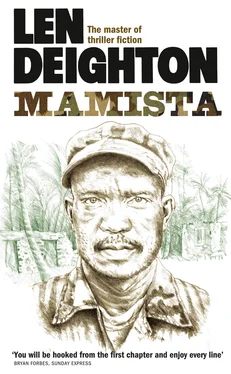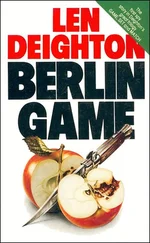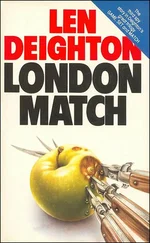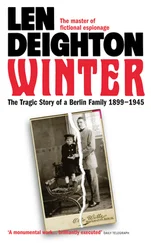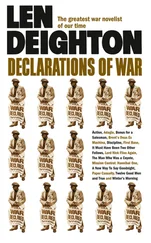1 ...8 9 10 12 13 14 ...22 ‘Ummm. I see what you mean,’ said the President.
‘The revenues from oil will bring prosperity enough to establish someone in political power for at least a decade. Whatever creed the government preaches, the oil money will make their politics seem worth copying elsewhere in Latin America. Give it to the Marxists and we will be perpetuating the myth of Marxist economics. We will live to regret it.’
The President’s face didn’t change but there was a rough edge to his voice: ‘Sit in my chair and you worry less about the teachings of Karl Marx. My supporters are inclined to think crime here at home is the number one issue on the ticket, John. Crime and drug abuse. Stop the drugs and we reduce violent crime. That’s the way the voters see it.’
‘It’s too simplistic.’
‘I don’t care what you call it,’ said the President with a harshness one seldom heard from him. ‘I don’t even care if it’s right. Opinion poll after opinion poll shows that drug abuse has become the number one public concern, and we’ve got an election coming up.’ He scowled and sipped his drink. ‘Did you see those figures Drug Enforcement came up with? … How many of my own White House staff are sniffing their goddamned heads off?’
Gently Curl corrected him. ‘It was just an assessment based upon national figures, Mr President. Your staff do not reflect that wide spectrum. And those figures would have included anyone who took one experimental puff of marijuana at any time in the past five years.’ Curl had learned never to use any of the more colourful names for addictive substances when talking to the President.
‘Well, let’s not get side-tracked,’ said the President, who sometimes needed that sort of reassurance. Self-consciously he sipped his cognac and ginger. Curl could smell it. ‘The Benz government is too closely identified with the drug barons. I don’t want him in power for ten more years.’
‘But that’s just it, Mr President. The drug dimension hasn’t been overlooked, believe me. Oil moneys could wean Benz away from the drug revenues. It would give him legitimate revenue. And the oil would give us a lever. He’d have to lean on his drug growers, or we could turn off the oil-money tap.’
‘Do we have any contact with the Marxist guerrillas?’
‘Yes, sir. More than one. We are siphoning a little medical aid to them through a British Foundation. We want a report on their true strength. Medical aid – shots and pills and so on – will provide us with a reliable headcount. We also plan to start some friendly talks with their leader. It would be as well to have someone down there negotiating, if only as a counter-weight to Benz. Or a counter-weight to Doctor Guizot,’ Curl added hurriedly.
‘Yes, we don’t want it to be a one-horse race. I hope you’ve chosen your “someone” carefully, John.’ The President picked up the heavy report from the floor and opened it. He never needed bookmarks; he could always remember the number of the page at which he stopped reading.
At this cue Curl stood up. ‘I’ll say goodnight, Mr President.’ He put the prompt cards into his pocket. There were many more things to say but this was not a good time to get the President’s assent to anything at all. Curl was disturbed by the way the meeting had gone. It had almost come to an argument. Until tonight he’d not realized how deeply disturbed the President was by the polls that showed his steadily decreasing popularity. In that state of mind, the chief might make a very bad error of judgement. It was Curl’s job to make sure the right things were done, even at times like this when the chief was unable to think straight. When happy times were here again, Curl would get his rightful share of praise. The old man was very fair about giving credit where credit was due. Sometimes he’d even admit to being wrong. That was one of the reasons why they all liked him so much.
‘Nothing else, was there, John?’
‘Nothing that can’t wait, Mr President.’ As Curl walked to the door there came a sound like a pistol shot. It was the President cracking the binding as he squashed the opened report flat to read it. He treated books roughly, as if taking revenge upon them.
LINCOLN’S INN, LONDON.
‘I knew you’d be crossing the water.’
Ralph Lucas was forty-five years old and every year of his active life had left a mark on him. His hair was grey, his eyes slightly misaligned. This gave his face a rakish look, as does the tilted hat of a boulevardier. He was short, with a straight spine, keen blue eyes and that sort of square-ended moustache – also grey – that had enabled generations of British officers to be distinguished as such in mufti.
Most of his native Australian vowels had been replaced by the hard classless articulation of men whose shouted orders have to be understood. His attitude to the world was derisive, like that of a conjuror welcoming to the stage some innocent from the audience.
Ralph grew up in Brisbane, Queensland. He was a bright child who, together with his sister Serena, responded well to the coaching their ambitious mother provided. In 1945 his father had come home from the war a young staff sergeant. Confident and energetic, he’d found a job in the construction business. He’d done well from the post-war boom. But Ralph Lucas’ family did not grow up in one of the new houses that his father had built. They bought an old house with a view across the bay to Mud Island. From his bedroom, on a clear day; young Ralph could see South Passage out there between the islands, where sometimes he went sailing with his cousins. When Ralph scored high marks in his exams his mother went back to school-teaching and so provided enough money for Ralph to study and eventually become a physician. But if his parents thought they’d see their son married and settled, with a general practice in some prosperous suburb, they were to be disappointed. His years as a student had left him restless and frustrated. His admiration for his father was deeply rooted. As soon as his training ended, Ralph joined the Australian army in time to go to the Vietnam war with an infantry regiment.
His mother felt betrayed. She’d given her husband to the army for five long years and then lost her son to it too. She was bitter about what that jungle war did to him. Her husband had remained comparatively untouched by whatever he experienced in the European campaign, but Vietnam was different. Her son suffered. She said a cheerful young man went to war and an old one returned on that first leave. She never said that to her son of course. Ralph’s mother believed in positive thinking.
Ralph’s time in Vietnam was something he seldom spoke about. His parents knew only that he ended up as a front-line doctor with a special unit that fought through the tunnels. It was a dirty remorseless war but he was never injured. Neither did he ever suffer the psychological horrors that came to so many of the men who spent twelve or fifteen hours a day trying to patch and pull together the shattered bodies of young men. Major Ralph Lucas got a commendation and a US medal. A few weeks before his service was up, he was made a colonel. But anyone who expected this decorated warrior and physician to be a conventional supporter of the establishment was in for a shock.
It was in the bars and officers’ clubs of Saigon that Lucas suffered the wounds from which he never recovered. He began to think that the vicious war that so appalled him was no more than a slugging match to occupy the innocents, while crooks of every rank and colour wallowed in a multi-billion-dollar trough of profits and corruption. Asked to comment afterwards he liked to describe himself as ‘a political eunuch’. But within Lucas there remained a terrible anger and a cynical bitterness that could border on despair.
Читать дальше
